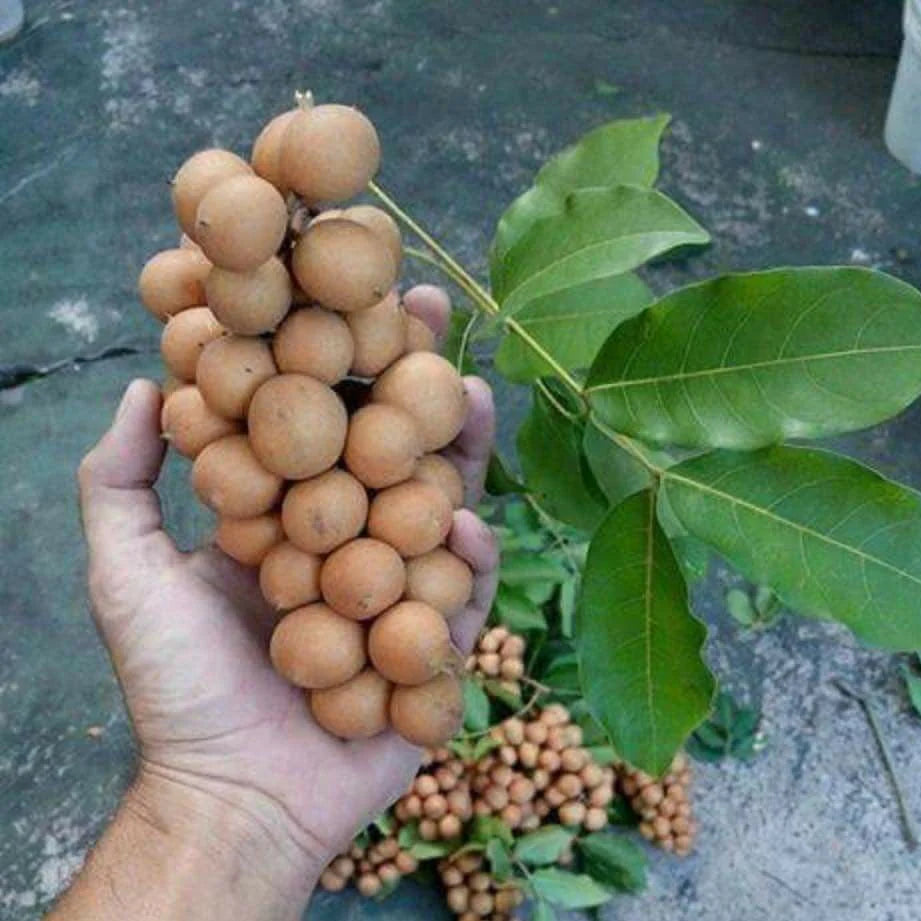Love it? Add to your wishlist
Your favorites, all in one place. Shop quickly and easily with the wishlist feature!
[message]
[title]
[message][subMessage]




Veliyath Gardens
Couldn't load pickup availability
The Pitombeira, also known as Brazilian Longan, is an exotic fruit-bearing tree native to the Amazon Basin, encompassing countries like Brazil, Colombia, Peru, Paraguay, and Bolivia. Scientifically known as Talisia esculenta, this medium-sized evergreen or semi-deciduous tree is cherished for its unique fruit clusters, cultural significance, and health benefits. The fruit's sweet and sour taste, combined with its medicinal properties, makes it a valuable addition to gardens and a treasure trove for fruit enthusiasts.
Pitombeira fruit offers a unique balance of sweet and sour flavors. The translucent, juicy pulp is mildly tangy with undertones of tropical sweetness, making it a refreshing treat. The flavor has been likened to a mix between lychee and longan but with a slightly earthier tone.
The Pitombeira tree, with its rich heritage, health benefits, and culinary versatility, is more than just a fruit plant; it’s a testament to the wonders of nature. By growing this tree, you not only enrich your garden but also support biodiversity and enjoy the satisfaction of harvesting a rare and nutritious fruit.
At Veliyath Gardens, we bring the exotic treasures of the Amazon Basin to your doorstep. The Pitombeira fruit plant offers a perfect blend of beauty, utility, and sustainability. Explore the magic of this Amazonian delight by adding it to your collection today!
Climate and Soil: Thrives in tropical climates and prefers well-drained, fertile soil with good moisture retention.
Watering: Requires consistent watering, especially during the growing season, but does not tolerate waterlogging.
Fertilization: Regular application of organic compost or a balanced fertilizer ensures healthy growth and fruit production.
Anti-inflammatory Benefits: The pulp and leaves exhibit anti-inflammatory effects, soothing conditions like arthritis and inflammation-related discomfort.
Antimicrobial Properties: Traditional use of Pitombeira includes treating infections, thanks to its natural antimicrobial compounds.
Supports Digestion: The fruit is a good source of dietary fiber, aiding digestion and promoting gut health.
Immunity Booster: Rich in vitamins and minerals, it strengthens the immune system and enhances overall health.
Fresh Consumption: The fruit’s juicy, sweet, and sour pulp is delightful when eaten fresh.
Juices and Smoothies: Blended into beverages, the fruit imparts a tropical zest.
Desserts: Its pulp is often used to flavor ice creams, sorbets, and other desserts.




